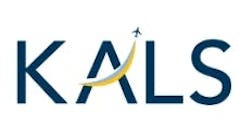In a message to employees, Boeing Commercial Airplanes CEO Stan Deal addressed recent assessments of Boeing’s commercial airplanes unit and shared the actions the company is taking and where it needs to continue to improve. The message was shared on Boeing’s website on March 12.
As we conduct quality stand downs across our company, your improvement ideas have been invaluable. We have used your feedback, and those from our regulator and customers, to take immediate actions to strengthen our safety and quality. These actions are central to a comprehensive plan we will soon deliver to the FAA.
In this update, I want to address two recent independent assessments of our operations, discuss our actions to date, and call out two things we must all do.
FAA production audit
FAA inspectors went deep into our Renton factories in January and February to audit our production and quality control. They examined 737 work instructions, monitored mechanics, inspected for defects, and more. The vast majority of our audit non-compliances involved not following our approved processes and procedures.
In addition to the steps we have taken to enhance quality, such as adding layers of inspections, our team has taken prompt action to ensure understanding and compliance with our requirements, including:
- Working with each employee noted with a non-compliance during the audit to ensure they fully understand the work instructions and procedures
- Implementing weekly compliance checks for every 737 work cell, as of March 1
- Dedicating time in each shift for mechanics to complete compliance and FOD sweeps
- Auditing all toolboxes and removing any box that isn’t fully compliant
- Planning additional audits this month of the 737 program to ensure full compliance
Expert panel review
A panel of industry experts spent much of 2023 reviewing Boeing’s Safety Management System (SMS) as part of a mandate from the U.S. Congress. The panel recently issued a 50-page report of their findings.
The experts found our SMS reflects global standards, but our procedures are too complicated, we change them too much, and we can do more to connect metrics to the safety outcomes we want.
Our teams are working to simplify and streamline our processes and address the panel’s recommendations. Meanwhile, here are two things each of us must do to strengthen safety and quality at Boeing.
- Precisely follow every step of our manufacturing procedures and processes. These have been designed to ensure conformance to specifications and compliance to regulatory requirements. We can and should update procedures and processes, but until then, we must adhere to the existing ones.
- Always be on the lookout for a potential safety hazard or quality escape. If you spot an issue, you are fully empowered to report it through your manager or the Speak Up portal, so we address it right away rather than travel the risk to the next person or position.
Progress so far
Our teams are making progress in several critical areas, including reducing traveled work in our factories, including minimizing the need for rework of parts coming from our suppliers. Through our collaboration with Spirit AeroSystems, we have implemented additional inspection points at their facility in Wichita. As such, starting March 1, teams there have been ensuring first-pass quality before any fuselages are shipped to Renton.
This week, we will deploy our Safety Management System to conduct new reviews of traveled work within our four walls. We will assess our status in the factory and, if needed, put mitigation plans in place. We will not hesitate in stopping a production line or keeping an airplane in position.
We have more to do and you play an important role. The quality stand downs have been a great platform to surface ideas and we have more of those planned this month. Meanwhile, please continue to raise concerns, anonymously or otherwise, via Speak Up. Thank you for strengthening our commitment to compliance and ensuring safety and quality in all that we do."





